#diocletian
Text
hey. wanna see something inane?
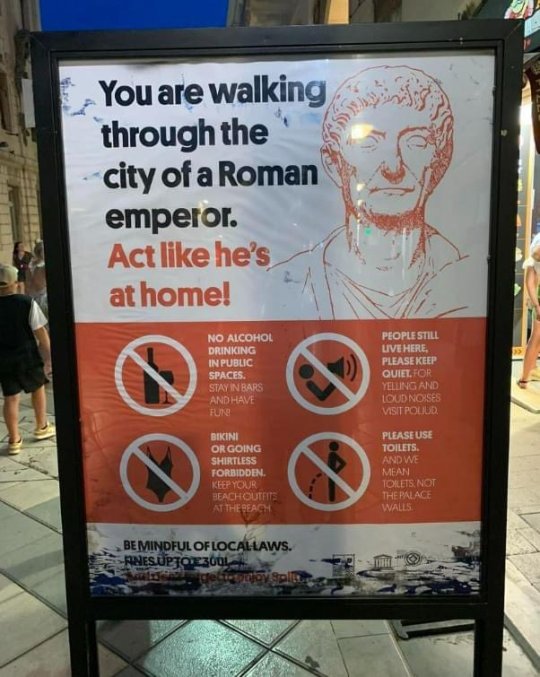
As seen in Diocletian's Palace, in Split, Croatia.
To be fair, Diocletian was one of the more sober and serious ones.
[source]
669 notes
·
View notes
Text



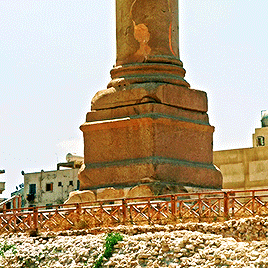
ANCIENT EGYPT BY TRAIN (2023) — 1.01 Alexandria
POMPEY'S PILLAR (عمود السواري) is the name given to a Roman triumphal column in Alexandria, Egypt. Set up in honour of the Roman emperor Diocletian between AD 298–302. The giant Corinthian column originally supported a colossal porphyry statue of the emperor in armour. It stands at the eastern side of the temenos [enclosure] of the Serapeum of Alexandria, beside the ruins of the temple of Serapis itself. It is the only ancient monument still standing in Alexandria in its original location today. [source]
#egypt#ancient egypt#egyptology#archaeology#historyedit#documentary#gifsbyancientegyptdaily#roman history#roman egypt#doc: ancient egypt by train#2023#alexandria#pompey's pillar#diocletian
159 notes
·
View notes
Photo
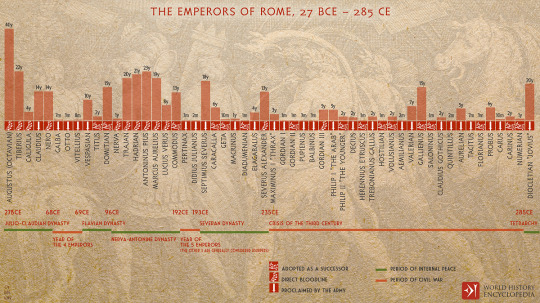
The Emperors of Rome, 27 BCE - 285 CE
An infographic depicting the timeline of the emperors of Rome from the ascension of Caesar Augustus (Octavian) in 27 BCE until the end of the Crisis of the Third Century and the onset of the Tetrarchy under Diocletian "Jovius" in 285 CE through war, peace, crisis of succession and power vacancies.
Image by Simeon Netchev
101 notes
·
View notes
Text
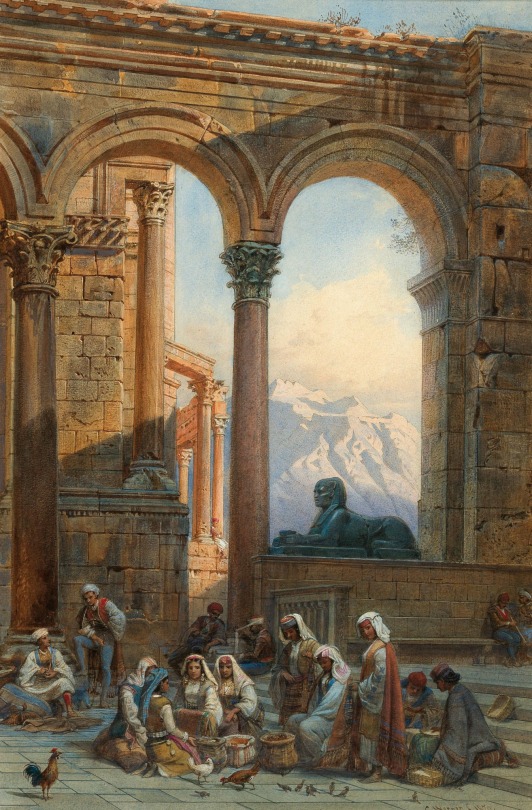
Diocletian’s Palace, Split, Croatia, 1879 by Carl Werner
#carl werner#carl friedrich heinrich werner#art#diocletian#palace#ruins#roman#romans#province#dalmatia#croatia#history#europe#european#architecture#fortress#ancient rome
325 notes
·
View notes
Text

Gold medallion of the Roman emperor Diocletian (r. 284-305 CE). Ascending the throne after some fifty years of instability in the Roman Empire, Diocletian successfully restored order, dividing the Empire into eastern and western portions, each of which was ruled by a senior (Augustus) and junior (Caesar) emperor. He also earned infamy for his aggressive persecution of Christians, motivated by his belief that the traditional Roman gods were angry at the spread of "novel" religions. In 305, he became the first emperor to abdicate of his own accord, retiring to his palace at Split in present-day Croatia. Here Diocletian is depicted with a laurel crown and military cuirass, holding a globe surmounted by Victory in his right hand. Photo credit: Classical Numismatic Group, Inc. http://www.cngcoins.com
#classics#tagamemnon#Ancient Rome#Roman Empire#ancient history#late antiquity#Late Roman Empire#Diocletian#Roman history#art#art history#ancient art#Roman art#Ancient Roman art#Roman Imperial art#late antique art#medallion#metalwork#gold#goldwork#numismatics#ancient numismatics
156 notes
·
View notes
Text
☀️🌊🦀🇭🇷
(Split/Solin September 2023)

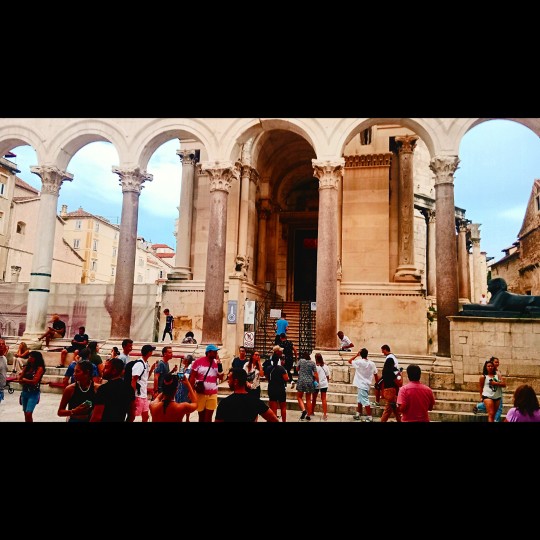






#croatian flag#chorwacja#croatia#croatian culture#hrvatska#split croatia#split#sea#adriatic sea#waves#ancient rome#diocletian#cats#mačka#ljubav#dalmatia#dalmacija#slavic folklore
11 notes
·
View notes
Text
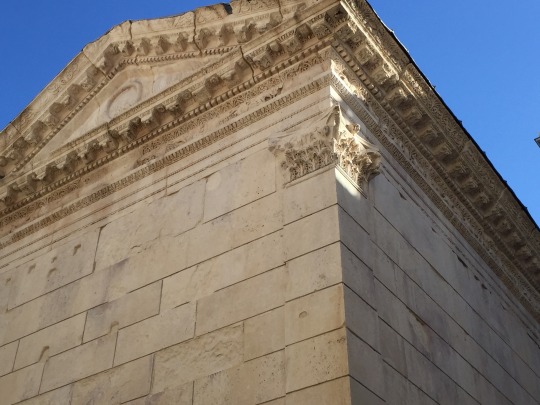

Diocletian’s Palace in Split, Croatia.
16 notes
·
View notes
Text
ON THIS DAY, 303 AD
FIRST EDICT for PERSECUTION of CHRISTIANS issued at NICOMEDIA by EMPEROR DIOCLETIAN

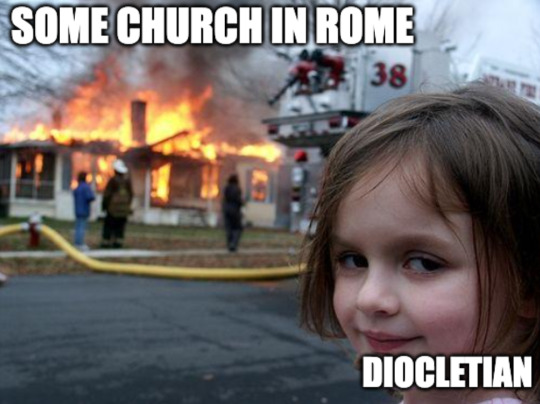





#history#ancient history#classics#ancient rome#roman#memes#meme#jesus christ#christianity#persecution#diocletian
2 notes
·
View notes
Photo

DIOCLETIAN “War of All against All” CD 2010 (’With a sudden halt of the Great Machine... Come Men of Iron and Steel, Lets us prepare you for Bloodshed... Bring your sharpened sabre's to Battle. As I am the Synergy of War, Unchained By the Oldest God... From the Fortress of the Unconquerable... Chaos - Is the End of Man...’)
1. Black Dominion
2. Desolate Earth
3. All Against All
4. Might Is Right
5. Kingdom of Rats
6. Death Tyrant
7. Nuclear Vomited
8. Blood Aeon
9. Infernos
10. Fortress of the Unconquerable
https://diocletian.bandcamp.com/album/war-of-all-against-all
9 notes
·
View notes
Photo
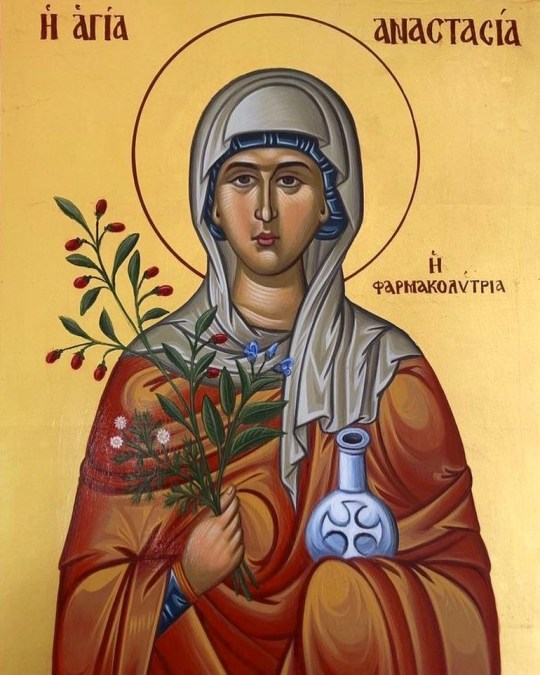
Today we celebrate the Great Martyr Anastasia the Deliverer from Potions. Saint Anastasia was born in Rome to a pagan father and a secretly Christian mother. She was educated in the medical arts by a pious Christian named Chrysogonus. After her mother died, her father organised her to wed the pagan Publius. Anastasia consented but on their wedding night, she feigned illness and preserved her virginity. At night, Anastasia would often dress herself as a beggar and would visit the Christian prisoners, feeding them, attending to their medical needs, as well as even ransoming many. When Publius found out about this, he beat here severely and locked her up at home. After the death of her husband, she distributed her wealth to the poor and suffering. She then continued to visit the Christian prisoners from city to city. Because of her excellence in the medical arts, she was given the title Deliverer from Potions (Pharmakolytria), often healing many from the effects of poisons, potions, and other harmful substances. One day, when Anastasia had gone to one of the prisons, she found nobody there as the Emperor Diocletian had ordered the execution of all of them. She began to weep loudly and the guards realised she was a Christian and brought her before the prefect. The prefect attempted to entice her to deny her faith but she remained steadfast. A pagan priest was brought to defile her, but as soon as he touched her, he became blind and died soon after. Anastasia was then condemned to death by starvation, however some of the Martyrs she had acquainted would visit her every night and gave her courage. After sixty days, Anastasia was brought out and stretched between four pillars and burned alive. Her body remained unharmed by the fire and a pious Christian buried her relics. May she intercede for us always + #saint #anastasia #stanastasia #sirmi #serbia #rome #martyr #martyrdom #greatmartyr #diocletian #emperor #emperordiocletian #romanempire #christ #jesus #jesuschrist #delivererfrompotions #christian #christianity #orthodox #saintoftheday (at Sremska Mitrovica) https://www.instagram.com/p/CmccUZzBvED/?igshid=NGJjMDIxMWI=
#saint#anastasia#stanastasia#sirmi#serbia#rome#martyr#martyrdom#greatmartyr#diocletian#emperor#emperordiocletian#romanempire#christ#jesus#jesuschrist#delivererfrompotions#christian#christianity#orthodox#saintoftheday
23 notes
·
View notes
Text
sv. Vít
… podle tradice syn zámožného pohana ze Sicílie, jenž byl tajně svým vychovatelem a kojnou veden ke křesťanské víře, kvůli níž byl pronásledován; kolem roku 304 zemřel coby sedmnáctiletý chlapec mučednickou smrtí v Římě na příkaz císaře Diokleciána, vládnoucího v letech 284-305 …
~
St. Vitus
… according to tradition, the son of a wealthy pagan from Sicily, who was secretly led by his tutor and nurse to the Christian faith, for which he was persecuted; around the year 304 he died as a seventeen-year-old boy by martyrdom in Rome on the orders of the emperor Diocletian, who ruled in the years 284-305…
Bohové dávných Slovanů ~ Gods of ancient Slavs (Martin Pitro, Petr Vokáč)
Somehow the fact the people, whose education and upbringing doomed him, are not even his FAMILY makes it much, much worse.
You're given the responsibility over other person's child and you decide to impose your own religion on them, knowing well enough they're likely to be persecuted for it?
The Diocletianic or Great Persecution was the last and most severe persecution of Christians in the Roman Empire.
I understand choosing your own faith, as an adult, but using your influence over a child of parents with other believes? To instil in them something that's likely to get them killed...
Different times perhaps, but I'm still disgusted.
#legends#St. Vitus#Christianity#Christian saints#martyrs#Diocletian#Diocletianic Persecution#Bohové dávných Slovanů#Martin Pitro#Petr Vokáč#V#books#quotes
7 notes
·
View notes
Photo
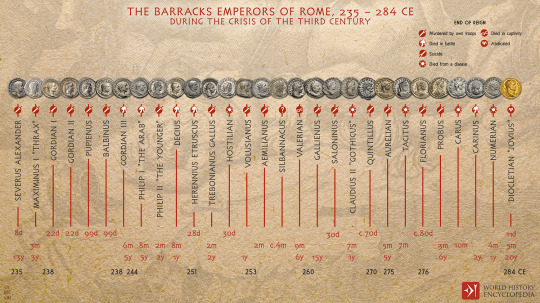
The Barracks Emperors of Rome, 235 - 284 CE
An infographic illustrating the chaos and volatility in the Roman Empire during the Crisis of the Third Century, known as the time of the Barracks Emperors. Also called “Soldier Emperors,” the term was introduced in the 19th century but made popular by Franz Altheim in the 1940s to mean rulers of Rome who were elevated to power by the army. In a time when the Empire was subjected to outside existential threats and considerable interior problems, the importance and ambition of the military commanders increased and following the assassination of Severus Alexander in 235 CE until the coronation of Diocletian in 284 CE, close to thirty emperors rose and fell (most of them violently and by the same swords that placed them on the throne). Some were uneducated, from simple origins, and didn’t manage to get above the immediate military tasks, while others (e.g., Decius, Valerian, Gallienus) belonged to the senatorial elite.
Image by Simeon Netchev
67 notes
·
View notes
Text

Cross-section of the Baths of Diocletian by French architect Edmond Paulin
#diocletian#baths#emperor#roman#rome#ancient rome#architecture#ancient#classical#architect#art#history#europe#european#edmond paulin#statues#sculptures#romans
67 notes
·
View notes
Text
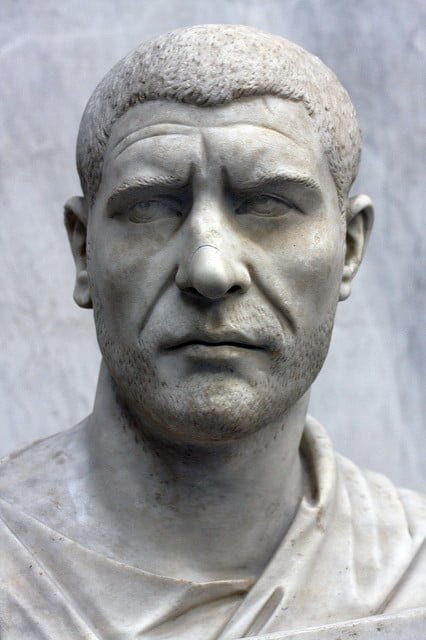
Why didn't ancient Romans give foreign names to their children?
The Romans began giving Greek names to their children during the pagan era. There was even an Arab dynasty of Roman emperors from Emessa in what is now Syria. So you have names like the emperors Philip the Arab, Elagabalus and Diocletian. Then did when Christianity was legalized by Constantine in 311 AD. Many Hebrew, and Aramaic names from the New Testament were given to children. Yaakov became Iacobus. Centuries later Iacobus became James. Shimon became Simon. Yohanan became Iohannes, ie John. Bar Tolmay became Bartholomaeus, Bart. Bar Nabi “son of the prophet" became Barnabas or Barney.
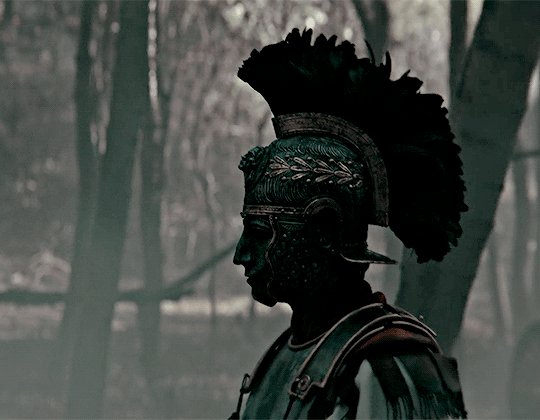
#bar nabi#john#roman#romans#christianity#aramaic#hebrew#arab#elagabalus#emessa#constatine#yohanan#bartholomaeus#bart#diocletian#legalized#barney#barnabas#tolmay#bar tolmay#son of the prophet#europeans#asians#europa#europe#western europe#kemetic dreams
48 notes
·
View notes
Text
Frank Herbert was not wrong that it is a terrible thing for a society to fall into the hands of a Hero:
Diocletian is another of those Emperors who redefined the state. While he was decidedly pagan and his more famous successors Constantine and Theodosius were Christian, Diocletian laid the foundation for the state that survived in the eastern half of the old Roman Empire and became the terminologically redefined Byzantine Empire. He did this in the wake of the Crisis of the Third Century, reaching a seemingly obvious and yet not so solution that the Empire was more than one man could rule, so the office of Emperor became a collegiate one of multiple men ruling what was a single Empire until the collapse of the West in the 500s.
Like his predecessors Aurelian and Probus he was able to consolidate the territory of the Empire, unlike them thanks to his division of the position of Emperor he was able to ensure some genuine peace. He rebuilt the army, rebuilt the tax system, the distribution of land, and passed edicts that taken at face value serve as the prototype of that proto-Muscovite autocracy by which Byzantium came to be defined. Abstractly, that was so. Across the entirety of the old Roman Empire it was aspiration and not yet reality as it would turn into in the Eastern Empire.
Diocletian, like Severus, Vespasian, and Augustus, rewrote the Empire. He built the system Constantine expanded on, and as a figure of importance in Western Eurasia is matched only by Han Gaozu and Tang Gaozu in China. And as with those other Emperors the price of a Hero for a society is a very steep and lasting one indeed.
10/10.
2 notes
·
View notes
